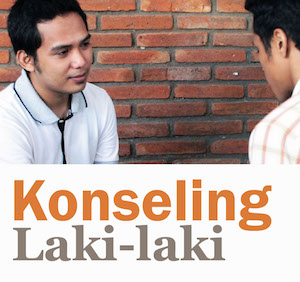Children are usually more likely to vent to their mother than to their father. No wonder sometimes a father is confused with what is actually being experienced by the child, whether they are felling sad, embarrassed, angry or afraid. Dads have the same capacity as mums to understand the dynamics of children’s lives, including their feelings. When children grieve, or are afraid or anything, it is not only a mother’s duty to help them overcome these problems. Some of the ways listed below may be used by fathers in order to help children cope with their feelings.
Overcoming Child Guilt:
Problem 1: Pseudo guilt
One day, your child may feel very guilty towards his friends because he/she did not succeed in bringing his/her class’s prestige in a smart quiz competition at school. All day he seemed glum, and looked to blame her/himself for being so stupid and not being able to make his class become champions.
During the time when a child feels guilty, as a parent you need to help the child to distinguish whether his/her feelings of guilt are justified or simply unnecessary guilt. In the above example, fathers should encourage their child to tell him about the game. Children need help to realize that in every game there must be a loser, and that is a normal thing.
Even if their friends blame them, it's only because they feel disappointed. You must emphasize to the child that a defeat in a match is an opportunity for him to practice harder.
Problem 2: Real guilt
The little child accidentally spilled a glass of milk on top of your friend’s couch when you visited them. Not only are you embarrassed and feel guilty about your friends couch, the little child feels the same way. As a wise father, you should know that this accident was torture for the little one. Even though you feel like expressing anger on the child, please act wisely by helping steer the guilt of the child into the right direction. Get your little one to help clean up the spilled milk as soon as it happens.
When you are finished, speak personally with the child. Tell them you knew it was an accident and that it was not intentional. Then, ask the child to apologize on the owner of the house, of course, along with you accompanying them. Guiding guilt is not only helping children to distinguish between true and false guilt, but also sharpening their conscience so that they feel guilty when they make mistakes
Overcoming child shyness:
At a party, your child suddenly holds the hand of a father who is wearing a shirt colored exactly the same as yours. Of course he felt very embarrassed when he realizes this is not his father. This event may look cute in your eyes, but not for your kids. Immediately approach your child, and say in a joking tone that you have also had a similar experience to him. Encourage your child to laugh with you about the silly thing you have both done. This will make their heart lighter because he knows it was not only him who has experienced that embarrassing thing.
Yes, one of the best remedies to overcome shyness is to laugh at yourself. Children who are used to living in a family where they are invited to laugh together will grow into a child who has a positive attitude, even when he accidentally makes little mistakes.
Overcome child sadness:
Problem 1: sense of sadness caused by factors from within
The little one is continuously crying because he/she was not allowed to play at his/her friend’s house, even though it was explained to him/her that she/he was not allowed to go because she/he still has homework to do. The sadness from within can be overcome with tenderness, gentle discipline and love from you as a parent. Explain to the child that it is useless to continuing crying because their request will still not be granted. Explain to the child that this is because you want them to learn to be responsible for their obligations, which in this case, is to finish his school homework.
Problem 2: Sense of sadness caused by external factors
Your child feels very sad about the loss of his/her grandmother who has just died. He/she turns to be more silent and daydreaming. Facing feelings of sadness caused by things outside the child are more difficult to process, especially if the child has not been able to use the ratio to overcome his/her sadness. In this case, you should comfort them and accept there is sadness in their heart. When the child is ready, begin to discuss the concept of death through using the example of his/her grandmother. Explain by using simple words that are easily digested by the mind of a child until they are finally able to understand.
Overcome Fear Of The Child:
The little child was so frightened after meeting with clowns in a playground, she was shaking and crying when the clowns over to her/him. Immediately approach the child and hug them tightly. Then take your little one away while explaining the concept of a clown is simply an ordinary human wearing a mask. You need to be aware that similar to feelings of shame, fear is a negative feeling that is not easily stopped by a command. When fear comes on, it can only be disappear a sense of security replaces its position.
What you need to remember is when children are afraid, and haven't been able to control their fear, they first need to be removed away from the object that is terrifying them. Forcing children to face the object they fear will only exacerbate the sense of fear they have for it. So, invite them to see the scary object from a distance, while you keep explaining the positive things about the object they fear.
Aditya Putra Kurniawan
Researchers at Rifka Annisa WCC
Translated by Kathleen Sherrin, intern student from Charles Darwin University, Australia








